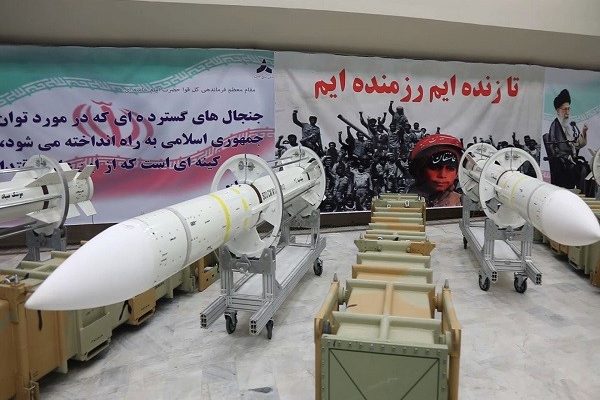Analysts: Russia has not condemned the Israeli air strike in Syria, as Moscow has its own concerns about Iran’s ‘permanent’ military presence in Syria; Washington strongly on Israel’s side, but only marginally engaged on the issue.
By Steve Leibowitz, World Israel News
There was scrambling in Moscow and Washington this weekend, as the world superpowers viewed a potentially explosive conflict emerging between Israel and Iran that was playing out on the Syrian border. The US State Department blasted Tehran for provoking the confrontation, while Russia told Prime Minister Benjamin Netanyahu to avoid triggering a ‘new spiral’ of clashes.
The United States voiced unequivocal support for Israel’s right to defend itself, following the interception of an Iranian drone in Israeli airspace, and blamed Iran for the escalation of violence. Washington broadened its criticism to include Iranian aggression throughout the Middle East, saying its behavior “threatens peace and stability.” The Pentagon weighed in, saying, “Israel is our closest security partner in the region and we fully support Israel’s inherent right to defend itself against threats to its territory and its people.”
Netanyahu has made several recent trips to Russia to urge President Vladimir Putin to rein in Iranian moves in Syria. Just last month the Israeli leader appealed to Putin, warning that Israel will not allow Iran to create permanent bases inside Syria.
Following the altercation this past weekend between the two regional powers, Israel appealed to Russia to intervene in order to prevent further escalation. Israel reportedly initiated contact with officials in Moscow, asking the Kremlin to convey a message to Syria and Iran that Jerusalem is not interested in further violence. The message also stressed that Saturday’s events are proof that Israel’s warnings of Iranian entrenchment and growing boldness in Syria were merited.
Moscow issued a statement calling for “restraint” of all parties in Syria, adding that it considers risking the lives of Russian soldiers in Syria absolutely unacceptable. “We strongly call on all sides involved to show restraint and avoid all acts that could lead to complicating the situation further,” the Russian foreign ministry said.
US role ‘the biggest enigma’
Middle East analyst Amotz Asa-El told World Israel News (WIN), “There is a broad agreement that the Russians were not part of this altercation and it happened in spite of them. Russia wants a stable Syria and it wants to keep its air force and naval bases inside Syria. The Russians also want to be the exclusive foreign power in Syria and they are not happy about Iranian expansion. On that point they are on the same page as Israel. At the same time they do want to continue selling arms to Iran.”
“The American role is the biggest enigma. The Obama administration’s policy was to stay away, and it backfired. Nobody yet can understand the grand design of the Trump White House. The US is clearly on our side, but we don’t know what kind of Syria they are aiming for,” said Asa-El.
“To the best of my knowledge the only party that could influence Iranian behavior is Putin,” Iranian Affairs expert Eran Lehrman told WIN. “This is all playing out in Syria, and [President Bashar] Assad is beholden to the Russian leader and to Iran for keeping him in power. Iran thinks that it caused Syria to win the civil war, but Russia and Assad himself also have a stake in what emerges in Syria. Russia has a vested interest in ensuring that it maintains its gains as a regional player in the Middle East with both naval and air force bases on the ground. Israel has no choice other than to drive home the point to the Russians and others that we have red lines and mean what we say.”
Strong Russian Interests in Iran and Assad
Dr. Martin Sherman says Israel is fooling itself if it thinks Russia will force the Iranians from backing off. Sherman told WIN, “They may have some sentimental feelings for Israel because of the Russian Jews living here, but what guides the Kremlin is interests and not sentiment. They have a strong investment in both Iran and Assad. The Americans will not meaningfully insert themselves because they are still stuck with the ruinous results of Obama’s policy of restraint.”
According to several analysts, Russian diplomacy would have to address both Israeli and Iranian demands. Israel wants assurances that Russia will prevent massive Iranian construction of offensive weapons systems in Lebanon and Syria. Israel also insists that Iranian bases, if any, would have to be as far as possible from the Golan Heights. Iran, for its part, wants legitimacy for its presence in Syria and to be taken into account in a future accommodation.
The main question is whether Russia has the patience to work for a diplomatic solution that would find an acceptable formula on the Iranian presence in Syria. Optimistic analysts say that Russia does not, in the long term, want to be too closely aligned with Iran and that they have their own concerns about Iran becoming too powerful in Syria.
Can Russia be an effective arbiter of the conflict? It’s not certain, but Israel’s intensive bombardments Saturday would not have been possible without Russian acquiescence, and the Russian Foreign Ministry’s statement on Saturday’s escalation did not condemn Israel.




